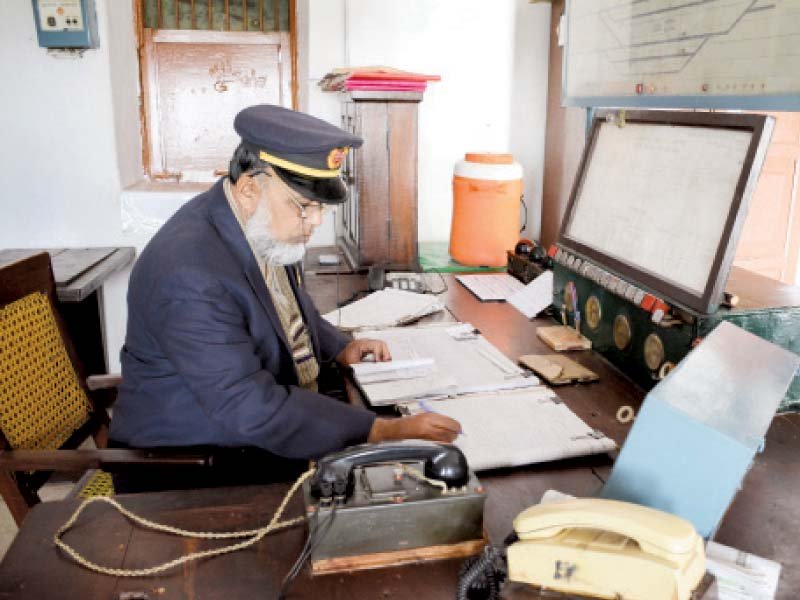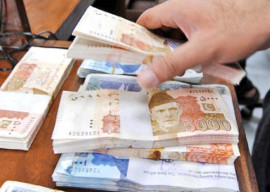
Muhammad Ramzan lifts a metallic Victorian-era telephone placed on his weathered wooden desk and punches out a number to speak to his signalman about a train that is scheduled to arrive shortly. His voice is soft but firm, reaffirming his years of experience as a stationmaster.
Ramzan has been working with the Pakistan Railways since 1978, and as a stationmaster and museum incharge at the Golra Railway Station, Rawalpindi, for the past seven years. He sits in a modest-sized office, filled with the heavy scent of ageing wood. The office has a twenty-foot-high ceiling, and was built during British rule by North Western Railways in 1881. The ceiling is well-preserved and carved out of colonial wood, the walls two feet thick and freshly whitewashed.
After completing his training at the Pakistan Railway Academy in 1978, Ramzan was appointed as a signalman at the Chaklala station. After a few years, he was upgraded to an assistant stationmaster, and posted at Wah Cantonment station. Having worn several hats, serving at various stations across Pakistan and working night shifts for over three decades, Ramzan earned a well-deserved promotion to stationmaster at the Golra station.
“Most people in the country used to travel on trains in the 1970s because it was the safest and most affordable mode of transport,” Ramzan reminisced with a hint of nostalgia. Up until the late 1970s, the Pakistan Railways functioned as a well-maintained, efficient and profitable transport system, he shared.
Steam engines with bellowing whistles once had a strange romanticism and sense of adventure about them. The railway network is one of the greatest assets Pakistan acquired from the British, but has progressively deteriorated due to mismanagement and corruption. With the advent of public vans, cabs, rickshaws and most recently the Metro Bus Service, not many people in the country are even aware that there is a functional railway system that connects Rawalpindi to her outskirts.
“The discontinuation of a time-tested father-to-son tradition, [where] the son of a railway employee would be hired at his father’s retirement, has also played a role in the degradation of Pakistan Railways,” Ramzan told The Express Tribune. He elaborated that the reason why this policy was made in the first place was because children of railway employees residing in station housing would watch their fathers and learn the ropes while growing up.
According to official reports and surveys, several railway tracks across Pakistan are cracked, and there is a fear that these trains can derail at any time. As many as 12 people were killed in November this year, while over a 100 were injured when the Jaffar Express derailed near Bolan in Balochistan. The railway bridges, which are still being used today, expired decades ago. In addition, rescue equipment in the possession of the service is also out of date.
“The past two decades have been terrible in terms of business, but things have slowly started improving with better governance and advancements in technology, such as the introduction of the automatic block system and centralised traffic control,” the stationmaster shared with a smile. Ramzan, like most of us, hopes that recent improvements such as the introduction of new, advanced trains are a sign of better times to come for the Pakistan Railways.
Published in The Express Tribune, January 3rd, 2016.

1725612926-0/Tribune-Pic-(8)1725612926-0-165x106.webp)















COMMENTS
Comments are moderated and generally will be posted if they are on-topic and not abusive.
For more information, please see our Comments FAQ